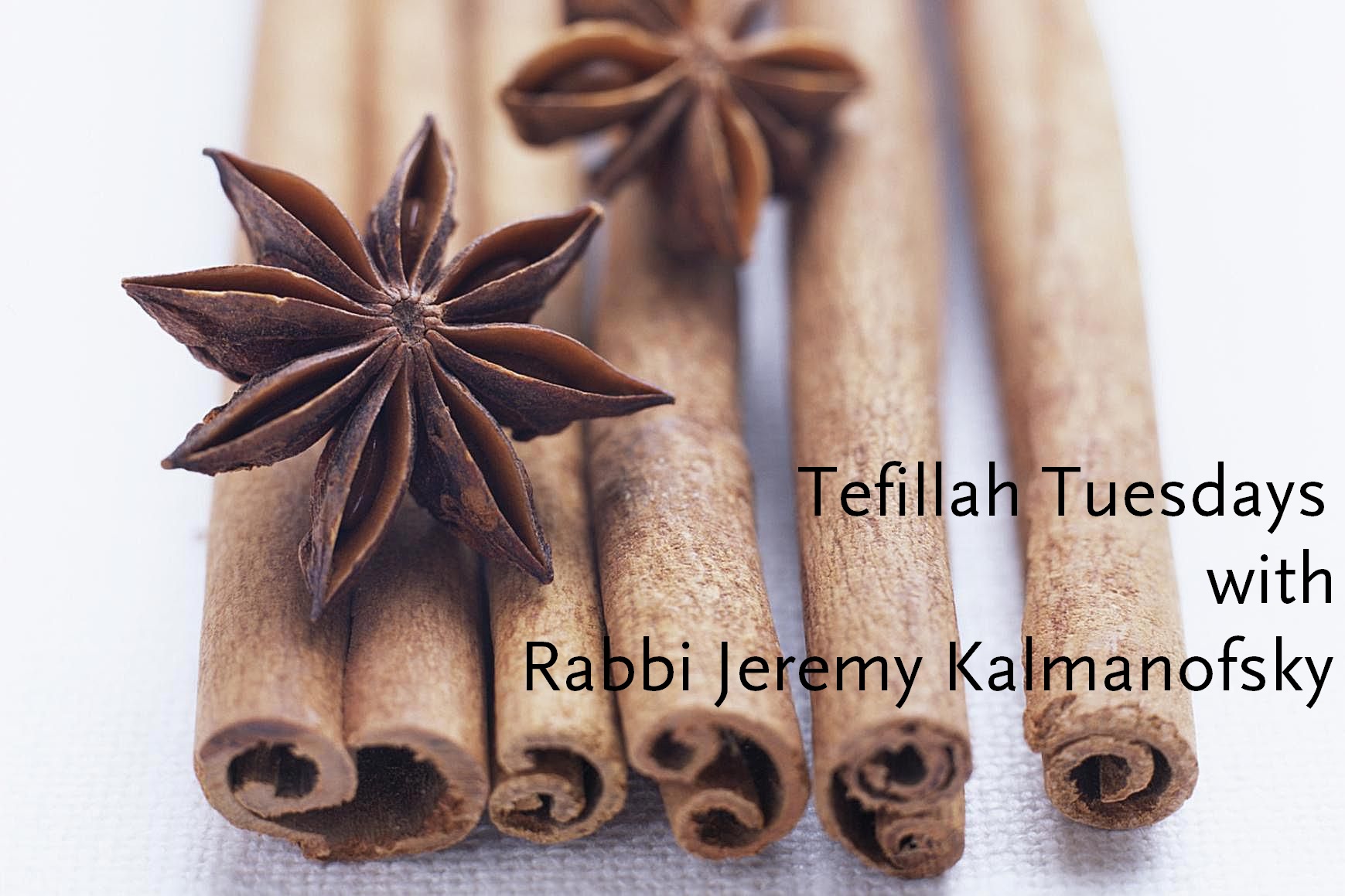כל הנשמה תהלל י’ה!
Let every breath praise the Lord!
For the third message in a row – with a couple more to come – here is another interpretation of this last verse in the book of Psalms.
The Talmud legislates that we say blessings of gratitude and celebration whenever we experience sensory and physical enjoyment in the world, such as consuming nutritious food and drink or seeing beautiful sights. How about sweet fragrances? Indeed.
“Said Rav Zutra bar Tuvya in the name of Rav: What is the biblical source for blessing on smelling fragrances? As it is said: כל הנשמה תהלל י’ה!, Let every breath praise the Lord! What sort of thing gives enjoyment to the soul but not the body? It must be the sense of smell [ברכות מג, ב].”
Now that one has a nice nose to it, doesn’t it? This little piece of legal midrash calls o us to notice and to express grateful reverence for life’s more evanescent pleasures.
Eating an apple seems more obviously blessing-worthy. You hold the apple in your hand, you see it with your eye, you hear its crunch, you taste its sweetness. All these experiences pervade your senses. Seeing the ocean, experiencing lightning, or seeing mountains and valleys (all of which warrant blessings, as in Mishna Berakhot 9.2) seem more obvious for liturgy. They are such beautiful, sometimes terrifying, examples of nature’s grandeur.
The blessing on sweet smells, on the other hand, seems delicate and fleeting. Literally, you cannot put your finger on it. One must pay close attention to notice smells. When I recite these blessings I express gratitude not only for the delight of the sweet smell, but sense an implicit exhortation to notice the blessings that inhere in what I cannot see.
So what blessing do you say?
As with diverse foods which have their own diverse blessings, the Halakhic answer depends on what you’re sniffing. As always, the universal opening is: Barukh Atah Adonai, Eloheinu Melekh HaOlam; Blessed are You, Master of the cosmos … Then, for fragrant annual plants without woody stems, continue borei is’vei besamim. “Blessed is God, Who creates fragrant grasses.” This applies to, say, tulips and lilies. For flowers that grow on perennials with woody stems, say borei atzei besamim. “Blessed is God, Who creates fragrant trees.” This applies to roses, magnolias and lilacs.
And in case you’re in doubt, as a general rule, you can always say borei minei besamim. “Blessed is God, Who creates various spices.” This catch-all blessing, which we also say at Havdala at the conclusion of Shabbat, corresponds to the catch-all blessing she’hakol nihyeh bidvaro, (“Blessed is God at whose word all things exist”), which is appropriate for any kind of food. So if you’re not sure about just how hyacinth grows, or you’re sniffing your bottle of Coco Chanel, this is the way to go.





